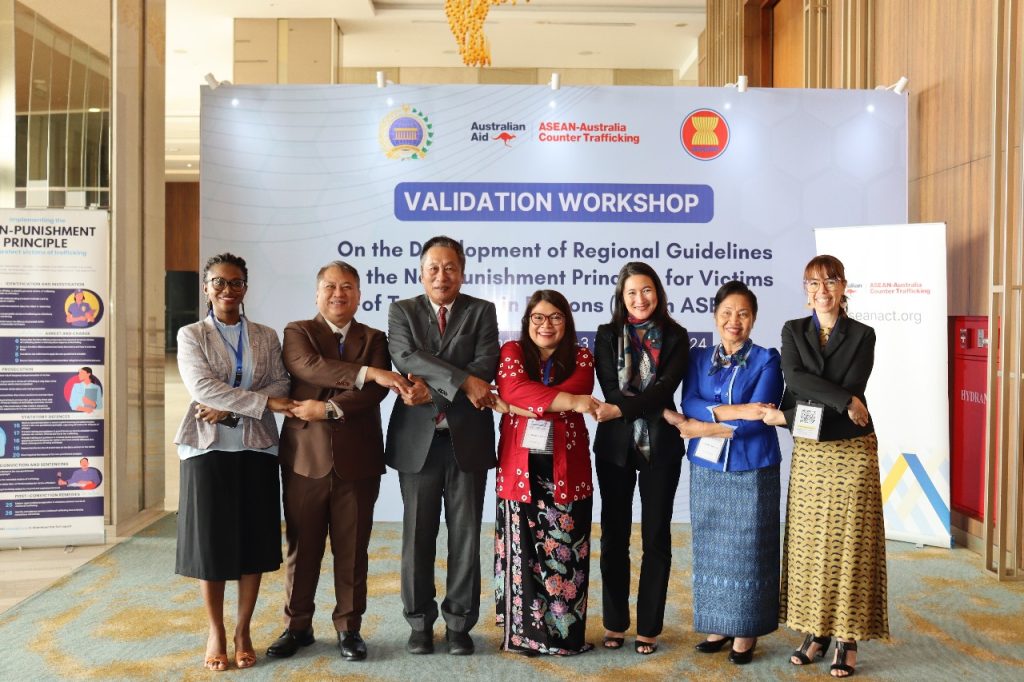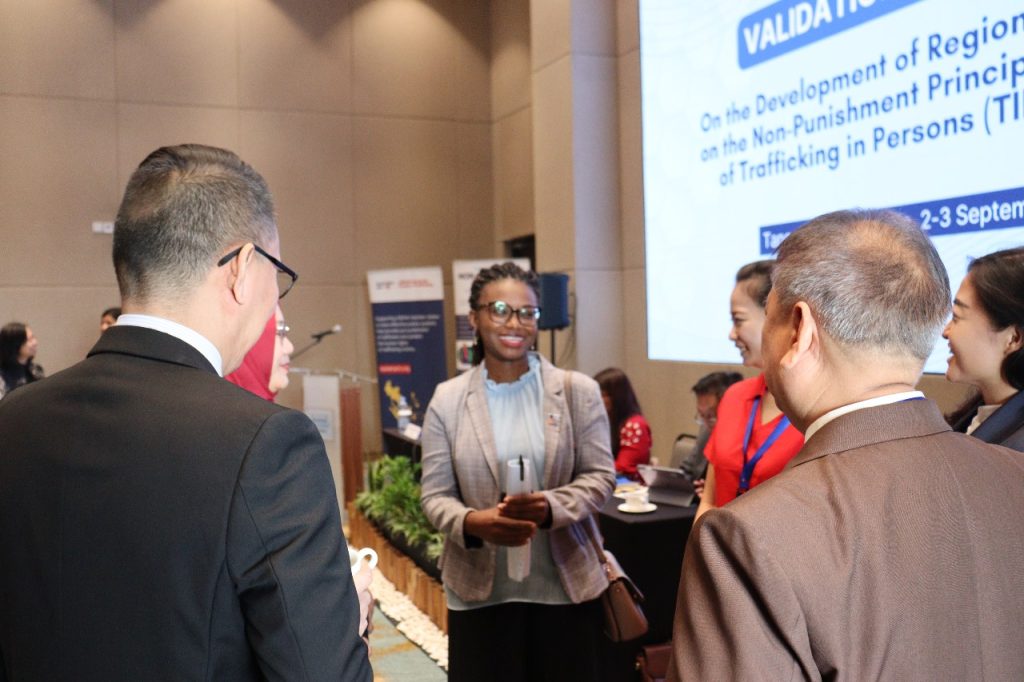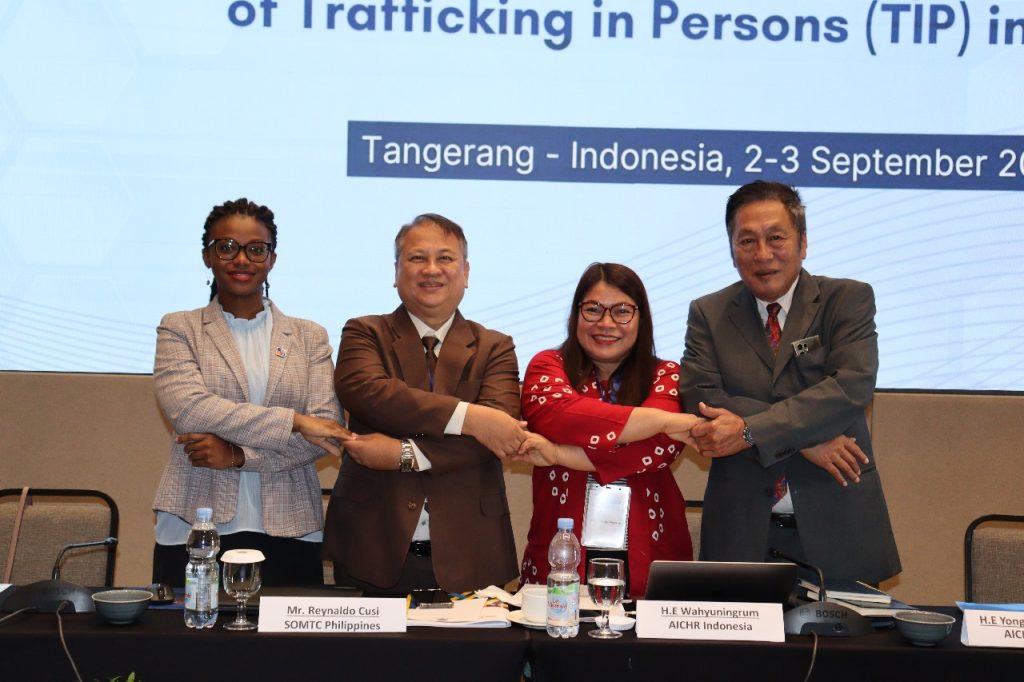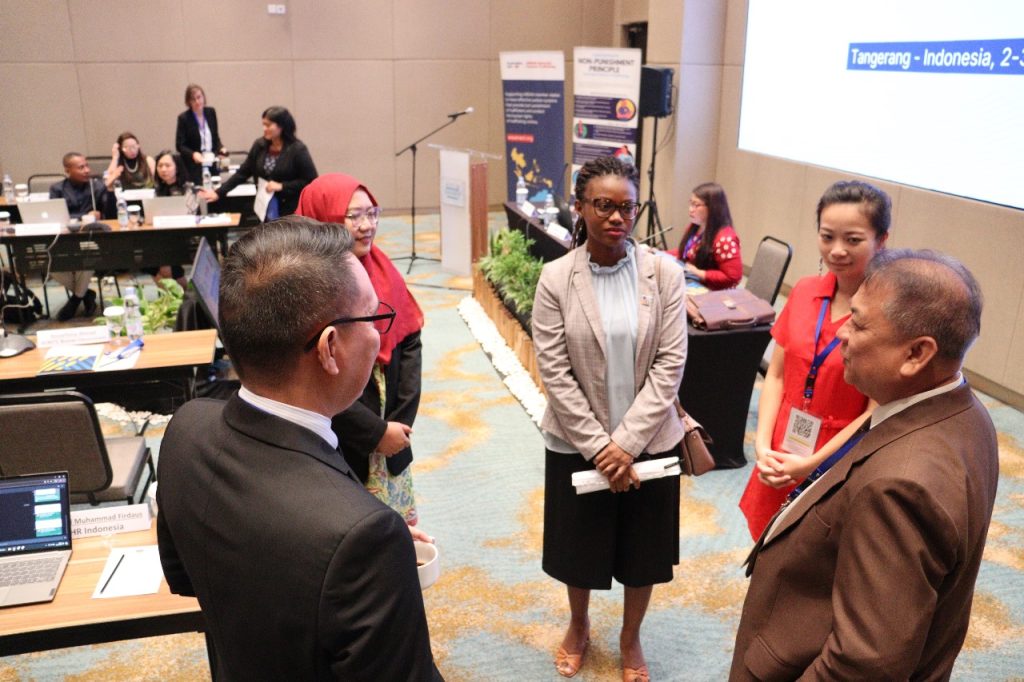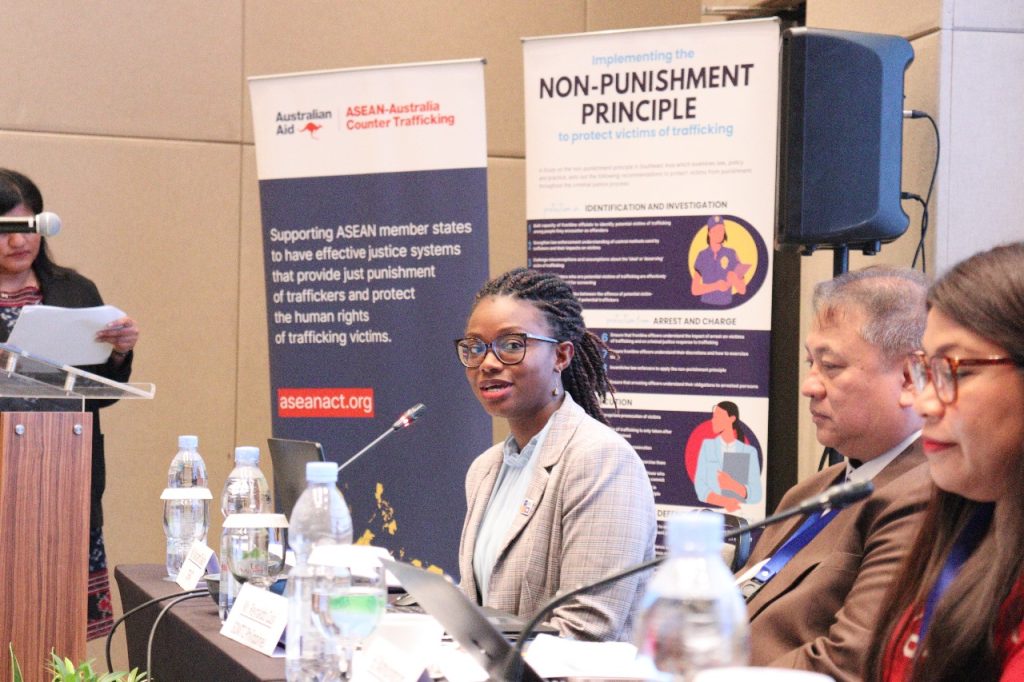by Dr Marika McAdam
The non-punishment principle is explicitly captured in Article 14(7) of the ASEAN Convention on Trafficking in Persons, and yet victims of trafficking across the ASEAN region continue to be punished for unlawful activities they were involved in as a direct result of being trafficked.
Victims of trafficking have been – and continue to be – punished for immigration-related offences, labour violations, drug production and cultivation, fraud, scamming, and a range of other offences including even the trafficking of other people. The immense scale of trafficking of people from around the world into scamming compounds in the ASEAN region, combined with the challenges associated with responding to the multiple crime types taking place in that context, reveals how organised criminals divert the risk of being arrested and prosecuted away from themselves, and onto the people whose exploitation they are profiting from.
Where the non-punishment principle is not applied, State capacity to disrupt and dismantle organised crime is severely weakened. The non-punishment principle is integral to fulfilling human rights obligations to victims, and obligations to prevent and suppress trafficking in persons and other serious crimes.
Recognising that these challenges exist at the intersection of the mandates of both the ASEAN Senior Officials Meeting on Transnational Crime (SOMTC) and the ASEAN Intergovernmental Commission on Human Rights (AICHR), these two sectoral bodies have come together for the first time in a joint initiative to achieve regional guidelines on the non-punishment principle.
The zero draft of the guidelines were discussed on 2-3 September in Tangerang, Indonesia, with the support of Australia’s ASEAN-ACT program. Over the course of the two days, substantive contributions were made by criminal justice practitioners, representatives of international organisations, civil society actors and others, from across the region.
This initiative is a step towards fulfilling the ASEAN Multi-Sectoral Work Plan against Trafficking in Persons 2023-2028 (Bohol TIP Work Plan 2.0). Looking beyond that commitment, AICHR and SOMTC representatives were adamant and aligned in the need to not only finalise the guidelines, but also to effectively monitor and report on their implementation. This commitment echos a key point made by Siobhán Mullally, Special Rapporteur on Trafficking in Persons at an earlier ASEAN consultation, that we need to see how the principle is being implemented by States in practice and what the outcomes are for victims of trafficking.
In working now to enrich the guidelines on the basis of these discussions, I will endeavour to do justice to the rich and candid insights shared during this workshop. I am conscious of the privilege of being involved in this multi-sectoral initiative and grateful as always to colleagues at ASEAN-ACT whose endless energy drives this work.
On 1 June 2025, ASEAN launched the guideline on the implementation of the non-punishment principle for victims of trafficking.
To download the guideline, click here.
